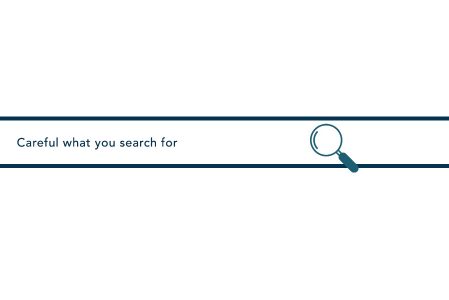A recent report from the Office of Cyber-Security and Information Assurance estimates that cyber-crime costs UK businesses more than £21 billion per year. If your company relies on computers to conduct any aspect of your business, you should be aware of how to protect your assets from cyber-crime, including cyber-attacks, cyber-theft and other security incidents and search engine threats.
Why employees’ searches could affect you
As an employer, you should educate your employees about searching certain topics on the internet because of the risk of coming across websites encrypted with viruses or malware that could be detrimental to your operating systems. Stress that the potential for cyber-crime could affect employees personally or it could affect the entire company.
The web’s most dangerous search terms
A recent study by McAfee, Inc., an internet security company, exposed the riskiest searches one can perform on common search engines like Google® and Yahoo®. McAfee searched 2,658 popular keywords and phrases across 413,368 URLs to analyse the risk percentage of certain terms (note that McAfee defines risk percentage as the maximum percentage of ‘risky’ sites a user could encounter on a single page of results, where ‘risky’ means red-flagged for viruses, malware and other damaging items).
Key findings on search engine threats include:
- The study deemed the search term ‘screensavers’ as the most dangerous keyword to use in public search engines, because it returned a maximum risk of about 59 per cent.
- Entering the word ‘lyrics’ in any phrase in a public search engine returns one risky site for every two search results.
- Any employee who clicks on a search engine result that contains the word ‘free’ has nearly a 22 per cent chance of infecting your company’s computers with threatening material like spyware, spam, adware, viruses or other malware.
- The least risky search terms are health-related topics and searches about economic downturn - these items have a 0.4 per cent maximum risk.
Remember that the list of dangerous search terms is ever-changing. Hackers want to impact the highest amount of people with the least amount of effort, so they aim for the key search terms used most. Ill-intentioned hackers also adapt quickly to the fast-paced nature of the internet and the public circle, so oftentimes social or celebrity events popular at a given moment climb quickly to the top of the internet’s most dangerous search terms list and are a high risk for infecting your company’s computers.
Industries considered a part of the critical infrastructure account for a disproportionate amount of computer security incidents. If your company is in any of these industries, be especially careful about internet searches to ensure computer safety and protect against potentially devastating loss, both monetary and in down time.
These industries include:
- Agriculture
- Chemical and drug manufacturing
- Computer system design
- Finance
- Health care
- Internet service providers
- Petroleum mining and manufacturing
- Publications/broadcasting
- Property
- Telecommunications
- Transport and pipelines
- Utilities
Protect yourself
There are examples of companies and organisations around the globe that had to shut down operations to address a large-scale virus or other malware issue. These problems can affect both large and small businesses and can cost hundreds of thousands of pounds to fix.
Avoid putting yourself at risk by:
- Enacting a stricter internet use policy
- Putting stricter website blockers or filters in place
- Educating employees about the hazards that risky search engine exploration can present
Some of these solutions may cost you in the short run, but lowering your risk will ultimately save your company money in potential identity fraud, monetary cyber-theft or informational cyber-theft if you look long-term.
Contact us for advice and guidance on managing your risks.
Google® is a registered trademark of Google, Inc. | Yahoo® is a registered trademark of Yahoo, Inc.


